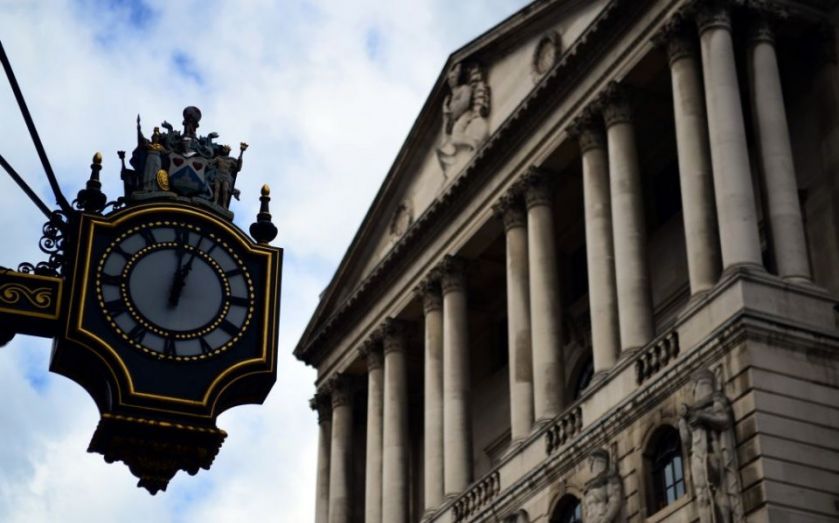Yes, the Bank could hike before the US Fed – but only if it ignores China

Who will raise interest rates first – the US Federal Reserve or the Bank of England? It’s not quite a Usain Bolt versus Justin Gatlin-esque fastest-man-on-earth debate. As rates have been so low for so long, perhaps long-distance runners Paul Tergat and Haile Gebrselassie are a better analogy, with the rate-hiking decision having more of the air of a marathon. Today’s Super Thursday at the Bank of England, when it will simultaneously publish its November Inflation Report, Monetary Policy Committee meeting minutes, and its interest rate decision, could reveal some clues as to who the winner could be.
For much of this year, the Bank of England has followed the tone set by the Federal Reserve, and some now think it won’t raise rates until the Fed does. This follow-thy-leader approach has left the Bank in a tricky position: the UK economic recovery has outpaced that of the US since 2013, pushing inflation projections beyond the 2 per cent target over the medium term. In other words, the Bank of England could have to raise rates before the Fed.
But is this likely? The Monetary Policy Committee has acted independently of the US Fed plenty of times in the past. The Bank has raised rates four times since it became independent. The first and fourth cycles occurred during periods of stable US rates. The second cycle began three months after a Fed tightening cycle commenced. The third cycle began seven months before the Fed’s first hike in June 2004. It’s clear that anyone who thinks Mark Carney will follow Janet Yellen because he has for the last few months needs a history lesson.
Read more: Shadow MPC votes 6-3 to hold rates down
The relative positions of the UK and US economies might also suggest that the Bank of England needs to go its own way. UK growth is among the fastest in the G7, with signs that it is playing catch-up with the US. The OECD projects that the UK will close its output gap – the difference between the actual output of the economy and the output it could generate at full capacity – sooner than the States. This relative outperformance is also playing out in the labour market, with unemployment in both economies approaching equilibrium, but with UK job vacancy rates declining relative to those in the US.
These trends are feeding into central bank inflation forecasts over the next two years. The Bank of England projects inflation will overshoot its 2 per cent target by the end of 2017, whereas the Fed thinks it will undershoot the same target by then. The Bank isn’t going to want to overshoot on inflation, so it might have to act before its bigger brother.
But we shouldn’t be so certain about this. What is happening outside of the UK and US is going to be a factor in when interest rates rise too, and the current slowdown in China is therefore an issue. The spectre of a “hard landing” has gained more traction given recent data about the Chinese economy and the recent volatility in the Shanghai equity market.
The UK is a more trade intensive economy than the US and so less insulated from China’s economic slowdown. In theory, a fall in exports to China is unlikely to be a game changer since they account for less than 1 per cent of UK GDP. But this ignores the impact of a Chinese slowdown on the UK’s largest trading partner – the already fragile Eurozone sends 1.3 per cent of its total exports to China. As a result, the Bank of England is unlikely to move without the Fed, given its vulnerability to further weakness in China through its trade links with Europe.
There are clearly no historic or economic barriers to prevent the Bank of England from pre-empting the Fed by raising rates. But the Bank is not likely to because the UK is vulnerable to China’s slowdown through its relationship with Europe. Likewise, currency appreciation from an early hike will not be welcomed, given it would probably pull inflation even lower (UK inflation is currently negative).
In the long old slog to raise rates, the one who crosses the line first will come down to how well the economies of the respective runners fair. It’s too early to call a winner but, if the UK keeps on focusing on the wider world, it will probably come in second place.